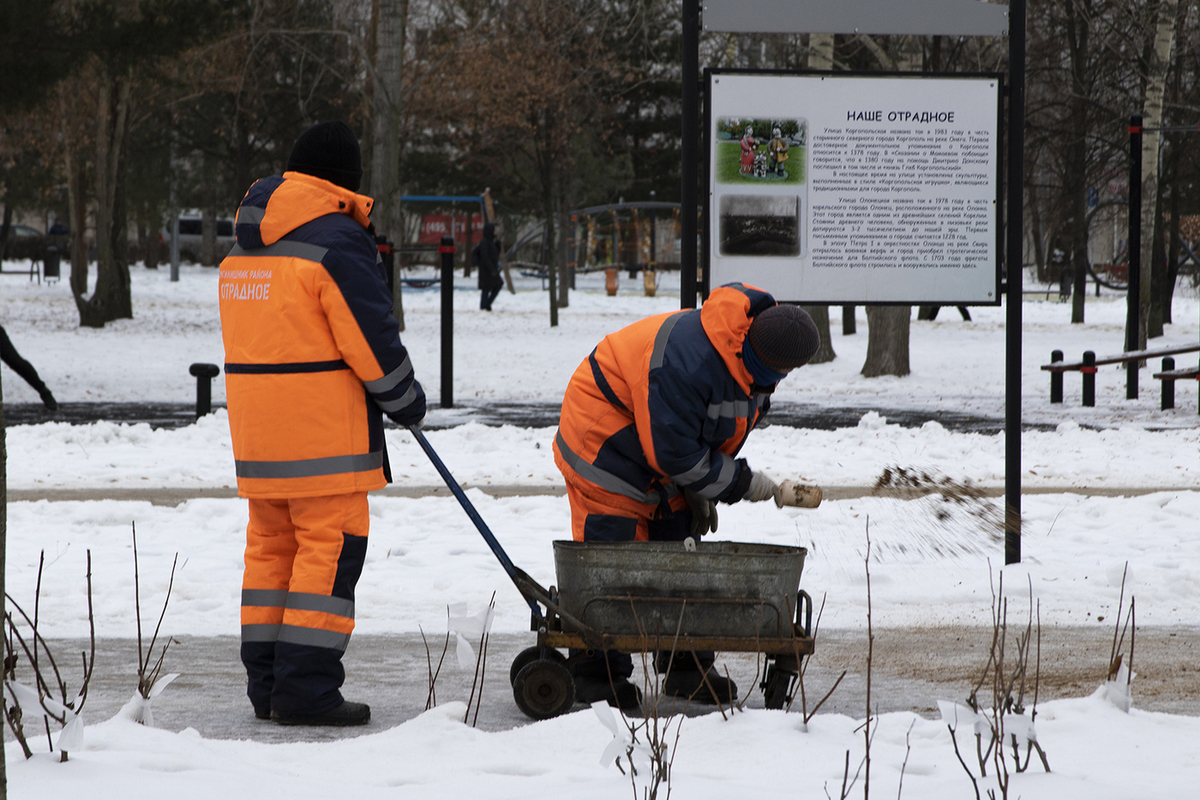Guest workers will be given two years: the disadvantages of the new bill regarding migrant workers are named
[ad_1]

The Ministry of Labor has developed a bill tightening the stay of foreigners in Russia. In particular, the authorities are going to limit the period for concluding employment contracts with migrants to two years – provided they work for one employer. It is clear that officials were prompted to take this measure by the terrorist attack in the Crocus near Moscow. However, it is unlikely to put an end to the breeding ground for radical Islam in national diasporas.
The document developed by the Ministry of Labor prescribes the rights and obligations of employers, as well as the rules for attracting foreign labor to the Russian Federation. The relevant State Duma committee supported it, proposing to add a clause on mandatory fingerprint control for foreigners at all border crossings.
The targeted recruitment of migrants will be carried out by a public legal company specially created for these purposes, effectively serving as a personnel center for various sectors of the economy. As for labor contracts with migrants, we are talking about abandoning the practice of concluding open-ended agreements with foreign citizens. As the press service of the Ministry of Labor explains, two years is enough to complete the projects for which the specialist was hired. The latter will have to leave Russia upon expiration of the contract with the employer.
According to the head of the Duma Committee on Labor and Social Policy, Yaroslav Nilov, the employment contract itself can always be extended if necessary. “Yes, there is a labor shortage in the labor market, but safety should come first,” the parliamentarian noted.
“The situation requires clarification,” Alexey Zubets, a professor at the Financial University under the Government of the Russian Federation, comments on the initiative. – The bulk of migrants are representatives of three categories: from foreign countries, from the countries of the Eurasian Economic Union (Armenia, Belarus, Kazakhstan and Kyrgyzstan), and finally, from those post-Soviet republics that are not members of the EAEU (Tajikistan, Uzbekistan, Ukraine). The bill does not apply to guest workers from the EAEU states, since on the territory of the Russian Federation they have exactly the same rights as Russians. We have concluded a bilateral agreement with Tajikistan on the organized recruitment of its citizens “for temporary work activities.” It is Tajikistan that is capable of providing Russia with additional labor: neither in Uzbekistan nor in Kyrgyzstan are there any free labor reserves.
-How justified is the initiative of the Ministry of Labor?
-In this story, control is important, and not of a technical nature, but rather of an ideological nature. Yes, the number of years a migrant spends in the country matters. At the same time, if a person is ready to integrate into Russian society, it does not matter at all whether he has a two-year contract or not. It is necessary to monitor, first of all, the state of mind, ideology, how well the visitor knows the Russian language, and take into account the potential threat on his part to Russia’s national security. Tajiks came to us to earn money; for them this is a foreign country. There are just hard workers, and there are extremists who are “sleeping” for the time being. You need to be able to distinguish between these two categories, focusing, of course, on the first. And the second one should be cut off at the border. True, this raises the problem of corruption, which is completely obvious. Its main source is corruption in diasporas within Russia, when migrant workers use bribes to get their own people jobs – in housing and communal services, on construction sites.
-From a purely economic point of view, what could be the consequences of the bill?
-Of course, small and medium-sized businesses will suffer, although not significantly. But the main thing is different: control measures are obviously powerless in the face of bribes. In the capital they will still fight corruption, but somewhere in the outback it is extremely unlikely. In practice, the bill will do little; it essentially creates another feeding trough for officials dealing with migration issues. And it is far from certain that this will be dealt with: corruption money is measured in billions of dollars, and the “roof” of these incomes is at the very top. The corruption rent per Tajik worker (mostly disenfranchised and poorly paid), multiplied by their total number in Russia, is so huge that no one will ever give it up.
-But who is to blame for the fact that a situation has arisen in our labor market where there is simply no replacement for migrant workers in a number of sectors of the economy?
-In fact, there is always a replacement. Take, say, Japan or Korea – highly developed countries, with a standard of living much higher than in Russia. There are no migrants there at all; they do not need additional labor from outside. It would be nice if our decision-making officials took note of this experience…
-What do you think of the idea of mandatory fingerprinting for foreigners at the border?
-This is a civilized, absolutely normal practice, its task is to prevent criminal acts. There is no need to talk about any violation of human rights in this case, nor about segregation by national groups. The measure will be introduced for everyone who enters Russia from other countries, including representatives of the EAEU.
[ad_2]
Source link






